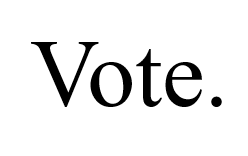Super Tuesday is over and with it we now have a clearer picture of who the Democratic nominee is going to be, and who is going to compete with current president Donald Trump to become President of the United States.
The American voting system is a bit different to that of the UK. Basically there are party primary races to see who the democratic and republican nominee for president is going to be. In the primaries you go up against your fellow party members to try and win as many states and ‘delegates’ as possible. Delegates are the voters in the primary election, selected to represent a portion of people at political assemblies. The number of delegates per state depends on that states influence on the electoral college and on their history of voting for democratic candidates. To be the nominee you must get more than 1, 991 delegates (so more than half of all the possible 3,979 delegates).
Voting in the Democratic primaries takes place from February to June, but Super Tuesday is the most important voting day for the Democratic primary race. Yesterday was when about one third of the votes take place in America, with fourteen states and the American Samoa caucus voting on the same day. It’s virtually impossible to recover from a bad Super Tuesday performance, and it usually indicates who the nominee is going to be. However, it can be incredibly close, as seen in the 2008 democratic primaries when Barack Obama only won 3 more states and 13 more delegates than his main competitor, Hilary Clinton.
Going into Super Tuesday, the Democratic primaries had already been chaotic. The race started with 29 campaigns but by yesterday there were only 5 left, and only two that anyone is talking about. Firstly, there’s Bernie Sanders, self-proclaimed democratic socialist who was leading the race after winning early in the New Hampshire primary, trying in the Iowa caucus and winning in the Nevada caucuses. Sanders is notable for his incredibly left-leaning views including his promises to provide free education and healthcare for all, funded through taxing the very wealthy.
Secondly, there’s Joe Biden, Obama’s Vice-President, who had been severely flagging in the polls and debates until the recent South Carolina primary, which he won with 48% of vote. Biden is much more centrist than Sanders, focusing on advertising his experience with Obama and his more conservative plans. Two of Biden’s main competitors, Pete Buttigieg and Amy Klobuchar (who were also seen as more moderate options), dropped out days before Super Tuesday and went on to endorse Biden, which almost certainly impacted his performance.
This morning in Britain, the results finally came rolling in. The clear winner of Super Tuesday was Joe Biden, who won nine of the states and living up to the momentum he built winning South Carolina. The main cause seems to be key endorsements, lack of competition for the moderate vote and his consistent support from black voters. Biden even won in states he didn’t campaign in like Arkansas and Tennessee.
Bernie Sanders won four states, including Vermont where he was elected Governor, and the influential state of California. Sanders remains popular with young voters, dominating the under-29 demographic, as well as maintaining popularity with Latino voters. However, Sanders was relying on an increase in new voters (young people who had never voted before), but it doesn’t look like there were a larger amount than usual. He also lost states that it was predicted he would do well in like Massachusetts and Minnesota.
Billionaire Michael Bloomberg, who entered the race three months ago and only performed in two debates, was the only other candidate who won a state, gaining the American Samoa vote. Unfortunately, Bloomberg was relying on Super Tuesday votes to propel his campaign, spending tens of millions of dollars on TV advertising in key states. Bloomberg has since dropped out of the campaign, endorsing Joe Biden.
The other two candidates, Elizabeth Warren and Tusli Gabbard, failed to perform, with Warren winning 19 delegates and Gabbard only 1. They have since pulled out of the presidential bid.
Despite Biden’s strong performance, Sanders can’t be dismissed just yet. He still has delegates from his previous performances, and it is possible that a strong turnout could turn the tide against Biden, especially now that the other candidates are counted out. This is historically unlikely however, and it’s likely that Biden will win the Democratic nominee in July.
Both Sanders and Biden have elements that make voters nervous. There are those who think that Sanders is too extreme and will push swing voters towards Trump and there are others who worry over Biden’s lacklustre debate performance and recent turn to muddled speaking. Either way, they’ll be up against Trump as it looks like he’ll win every one of his Super Tuesday states with around 90% of Republican voters. The real test will be in November when we return to voting, except this time it’ll be for President.



